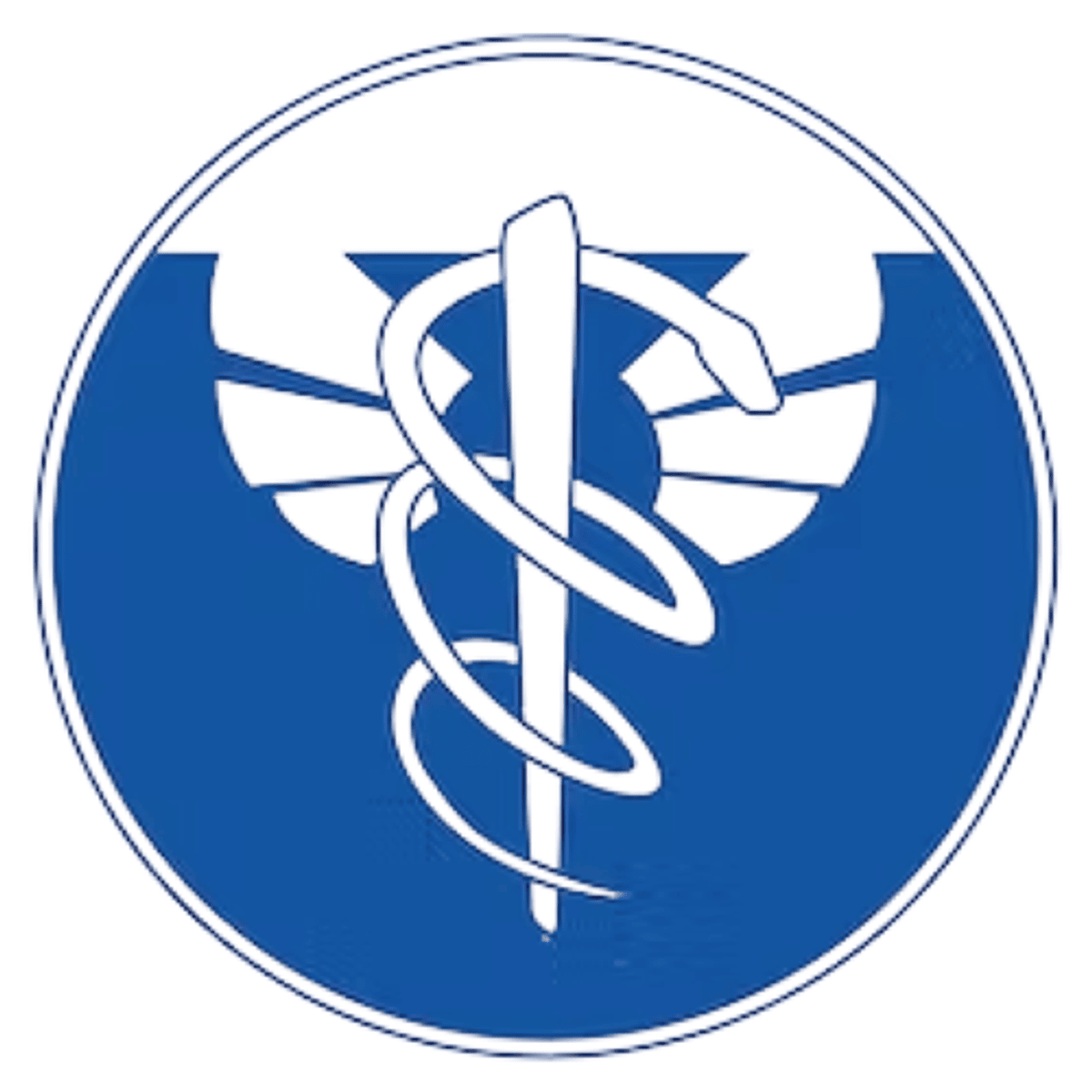Chaplain
Chaplain: A Career in Spiritual and Emotional Support
A chaplain serves as a spiritual guide and emotional support provider within secular institutions. Unlike traditional clergy who typically serve a specific congregation within a religious building, chaplains work in diverse settings such as hospitals, the military, prisons, universities, corporations, and hospice facilities. Their role is to offer care to people of all faiths and beliefs, as well as those with no particular religious affiliation, navigating life's challenges, crises, and transitions.
Working as a chaplain can be deeply rewarding. It involves forging meaningful connections with individuals during vulnerable moments, offering comfort, and helping them find meaning and hope. Chaplains often facilitate important conversations around ethics, grief, and existential questions, acting as a calming presence in stressful environments. The field allows for specialization in areas like palliative care, disaster response, or military service, offering diverse paths within the profession.
Understanding the Chaplain's Role
What Does a Chaplain Do?
Chaplains provide spiritual care, emotional support, and ethical guidance to individuals and groups within an organization. This care is typically non-denominational or interfaith, focusing on the universal human needs for meaning, purpose, hope, and connection, especially during times of illness, crisis, loss, or transition. They listen deeply, offer counsel, perform religious or spiritual rituals if requested and appropriate, and advocate for the spiritual needs of those they serve.
The scope of practice varies significantly depending on the setting. A healthcare chaplain might help patients and families cope with illness, grief, and end-of-life decisions. A military chaplain supports service members' spiritual well-being and morale, regardless of their faith background. A corporate chaplain might offer confidential support to employees facing personal or work-related stress. Regardless of the context, the core function remains providing compassionate presence and support.
Chaplains often work as part of interdisciplinary teams. In a hospital, they collaborate with doctors, nurses, and social workers. In the military, they are part of the command structure, advising leadership on religious and moral matters. This requires strong communication and collaboration skills, as well as the ability to translate spiritual concepts into language accessible to diverse audiences.
A Brief History of Chaplaincy
The concept of chaplaincy dates back centuries, initially associated with clergy serving royalty or military forces (originating from the story of St. Martin of Tours sharing his cloak, or 'capella'). Historically, chaplains were primarily tied to specific Christian denominations and served populations sharing that faith. Their role was largely liturgical and sacramental within these specific communities.
Over time, particularly in the 20th century, the role evolved significantly. The rise of professional healthcare, the complexities of modern warfare, and increasing religious pluralism pushed chaplaincy towards a more professionalized and interfaith model. The development of Clinical Pastoral Education (CPE) in the 1920s marked a pivotal shift, emphasizing psychological understanding and supervised practical experience alongside theological knowledge.
Today, modern chaplaincy emphasizes inclusivity and competency in serving diverse populations. While endorsement from a faith group may still be required for certain positions, the focus is broadly on providing skilled spiritual care that respects individual beliefs and values, whether religious or secular. This evolution reflects broader societal changes towards greater diversity and a nuanced understanding of spirituality beyond traditional religious boundaries.
Core Aims: Support, Guidance, Presence
The fundamental objective of chaplaincy is to provide spiritual and emotional support. This involves being a non-anxious presence for people experiencing distress, fear, grief, or uncertainty. Chaplains listen without judgment, validate feelings, and help individuals access their own sources of strength and resilience, which may include faith, community, nature, or personal values.
Another key aim is offering ethical guidance. Chaplains may be consulted during difficult decision-making processes, such as end-of-life care choices in hospitals or navigating moral dilemmas in a corporate setting. They help individuals clarify their values, consider different perspectives, and make choices aligned with their conscience or faith tradition, without imposing their own beliefs.
Finally, chaplains embody compassionate presence. Simply being with someone in their time of need, offering comfort, and acknowledging their humanity can be profoundly healing. This presence extends beyond individuals to the institution itself, where chaplains often play a role in fostering a more humane and ethical organizational culture.
Chaplain vs. Traditional Clergy: Key Distinctions
While chaplains are often ordained clergy or religiously endorsed individuals, their role differs from that of a typical pastor, priest, rabbi, or imam serving a specific congregation. Congregational clergy primarily focus on the liturgical, educational, and pastoral needs of their particular faith community, usually within a dedicated place of worship.
Chaplains, conversely, work within secular organizations and serve a diverse population with varied or no religious affiliations. Their focus is less on proselytizing or leading worship for a single tradition and more on providing individualized spiritual care that respects the recipient's background and beliefs. They operate in religiously pluralistic environments, requiring broad interfaith knowledge and sensitivity.
Furthermore, chaplains often undergo specialized training, like Clinical Pastoral Education (CPE), equipping them with skills in counseling, crisis intervention, and navigating complex institutional settings (like healthcare or military protocols) that may not be standard in traditional seminary education focused on congregational leadership.
Understanding these distinctions is crucial for anyone considering this path. Chaplaincy requires a commitment to serving all people, regardless of belief, within the structures and ethical frameworks of the employing institution.
Educational Pathways to Becoming a Chaplain
Building a Foundation: Undergraduate Studies
Aspiring chaplains typically begin with a bachelor's degree. While no single major is universally required, degrees in fields like Philosophy, Psychology, Social Work, Sociology, or Religious Studies provide a strong foundation. These programs develop critical thinking, understanding of human behavior, cultural sensitivity, and communication skills crucial for chaplaincy.
Coursework in world religions, ethics, counseling theories, and human development is particularly beneficial. Exposure to diverse perspectives during undergraduate studies helps prepare students for the pluralistic environments where chaplains work. Some students might choose a pre-theology track if offered by their university.
Regardless of the major, gaining relevant volunteer or work experience during undergraduate years is valuable. Opportunities in hospitals, crisis hotlines, community service organizations, or campus ministry can provide initial exposure to pastoral care situations and help clarify one's calling to the field.
Graduate Education: MDiv and CPE
A graduate degree is generally required for professional chaplaincy, particularly for board certification. The most common degree is the Master of Divinity (MDiv), a comprehensive theological degree (typically 3 years) that covers scripture, theology, ethics, church history, and pastoral care. Some institutions offer Master of Arts (MA) degrees specifically in Chaplaincy or Pastoral Care, which might be shorter and more focused.
Alongside or following the graduate degree, Clinical Pastoral Education (CPE) is essential, especially for healthcare chaplains. CPE is accredited, supervised ministry in a clinical setting (like a hospital). It's an intensive experiential learning program where students provide spiritual care under supervision, reflecting on their practice in peer groups and with a certified educator. Typically, at least four units of CPE (each unit ~400 hours) are required for board certification.
CPE helps students integrate theological knowledge with practical skills, develop self-awareness, improve interpersonal competence, and understand the dynamics of institutional settings. It's considered the gold standard for practical chaplaincy training in many sectors.
These courses provide foundational knowledge relevant to theological studies and pastoral care.
Professional Certification and Endorsement
Board certification is the hallmark of professional chaplaincy, demonstrating competence and adherence to high standards. Organizations like the Association of Professional Chaplains (APC), the National Association of Catholic Chaplains (NACC), and Neshama: Association of Jewish Chaplains (NAJC) offer Board Certified Chaplain (BCC) credentials. Requirements typically include a specific graduate degree, multiple units of CPE, endorsement from one's faith/spiritual group, and passing a rigorous peer review process demonstrating competency.
Endorsement is a critical component. It signifies that a recognized religious or spiritual body attests to the chaplain's good standing, qualifications, and suitability to function as a representative of that tradition in an institutional setting. Requirements for endorsement vary significantly between different faith groups and are essential for roles in the military, Department of Veterans Affairs (VA), federal prisons, and many healthcare systems.
Maintaining certification usually requires ongoing education and adherence to a professional code of ethics. While not all chaplaincy positions mandate board certification, it is increasingly preferred or required, especially for specialized roles or leadership positions. You can learn more about certification standards from organizations like the Association of Professional Chaplains.
Research and Advanced Study: PhD Opportunities
For those interested in advancing the field through research, teaching, or high-level leadership, pursuing a Doctor of Philosophy (PhD) or Doctor of Ministry (DMin) degree can be an option. PhD programs in areas like Practical Theology, Pastoral Care and Counseling, or Religious Studies allow for deep scholarly investigation into aspects of chaplaincy, spiritual care, ethics, or related fields.
Research conducted by PhD-prepared chaplains contributes to evidence-based practices in spiritual care, informs policy, and helps articulate the value and impact of chaplaincy in various settings. Graduates might work in academia, research institutions, or hold senior leadership roles within healthcare systems or denominational bodies.
A DMin is often more practice-oriented, focusing on advanced ministerial leadership and competence. It can be suitable for chaplains seeking to enhance their practice through applied research projects related to their specific ministry context.
Online and Independent Learning for Aspiring Chaplains
Supplementing Formal Education with Online Courses
Online learning offers valuable opportunities to supplement formal chaplaincy education or explore the field before committing to a full degree program. Platforms like OpenCourser list numerous courses covering relevant topics such as world religions, ethics, counseling skills, psychology, and specific areas like palliative care or grief support.
These courses can bridge knowledge gaps, provide introductions to specialized topics, or offer continuing education credits for practicing chaplains. They allow learners to study flexibly around existing commitments. While online courses typically cannot replace the MDiv or accredited CPE units required for board certification, they can significantly enhance one's understanding and preparation.
Exploring these resources can help you build a broad base of knowledge. Look for courses from reputable universities or instructors specializing in relevant fields.
These courses cover topics like spiritual competency, palliative care, and communication, which are vital for chaplaincy work.
Self-Guided Study in Key Areas
Beyond formal courses, self-directed study is crucial for developing the breadth and depth required for effective chaplaincy. Key areas to explore independently include grief and bereavement theories, crisis intervention models, interfaith dialogue practices, and the specific cultural and spiritual needs of diverse populations.
Reading foundational texts in theology, philosophy, ethics, and psychology can deepen understanding. Exploring resources from different faith traditions fosters interreligious literacy. Staying updated on current research in spiritual care through journals and publications is also important for ongoing professional development.
Consider focusing on areas relevant to potential specialization. If interested in healthcare, delve into medical ethics and the spiritual aspects of illness. For potential military chaplaincy, study military culture and the unique stressors faced by service members and their families. OpenCourser's extensive catalog can help identify relevant books and topics for self-study.
These books offer insights into forgiveness, meaning, and reconciliation, core themes in chaplaincy.
Virtual Practice and Simulation
While not a replacement for supervised clinical experience like CPE, online simulations and virtual case studies can offer opportunities to practice skills in a controlled environment. Some training programs or online courses incorporate scenarios that allow learners to practice active listening, empathetic responses, and ethical decision-making in simulated chaplaincy encounters.
These tools can help build confidence and identify areas for further development before engaging in real-world pastoral care situations. They might involve responding to written scenarios, participating in role-playing exercises via video conferencing, or using interactive platforms designed for healthcare or counseling training.
Look for opportunities that provide feedback, either automated or from instructors or peers. Engaging with complex case studies online can also sharpen analytical skills and expose learners to a wider range of situations than they might encounter in early practical experiences.
Gaining Experience Through Volunteering
Practical experience is invaluable. Volunteering in settings where chaplains work, such as hospitals, nursing homes, hospices, or non-profit organizations, provides firsthand exposure to the realities of spiritual care. This experience can strengthen a graduate school or CPE application and help discern if chaplaincy is the right fit.
Seek opportunities that involve direct interaction with individuals needing support. This might include patient visiting programs, grief support groups, or crisis hotline volunteering. Even roles that are not explicitly "chaplaincy" but involve compassionate listening and support can build relevant skills.
Document your experiences and reflect on what you learn about yourself, others, and the nature of spiritual care. Building a portfolio of volunteer work demonstrates initiative and commitment to the field, which is viewed favorably by educational programs and potential future employers.
Key Competencies for Effective Chaplaincy
Interpersonal and Communication Skills
At the core of chaplaincy lies the ability to connect with people authentically and compassionately. Active listening – truly hearing not just words but also the underlying emotions and meanings – is paramount. Chaplains must be skilled in conveying empathy, building rapport quickly, and creating a safe space for individuals to share their deepest concerns.
Crisis intervention and de-escalation techniques are often necessary, particularly in settings like emergency rooms, disaster sites, or prisons. Knowing how to remain calm, assess situations rapidly, and provide immediate emotional and spiritual first aid is crucial. Clear, sensitive communication is vital when discussing difficult topics like bad news, grief, or end-of-life issues.
Chaplains must adapt their communication style to diverse individuals, including those from different cultural backgrounds, age groups, and cognitive abilities. Non-verbal communication, such as maintaining appropriate presence and posture, also plays a significant role in establishing trust.
These courses can help develop crucial listening, empathy, and well-being skills.
Cultural and Spiritual Competency
Chaplains serve diverse populations, requiring a high degree of cultural and spiritual competency. This involves understanding and respecting a wide range of religious traditions, spiritual beliefs, cultural values, and practices related to health, illness, death, and grieving. It also includes sensitivity towards those who identify as non-religious or spiritual but not religious.
Effective chaplains possess knowledge of major world religions and various spiritual paths. More importantly, they demonstrate humility and curiosity, willing to learn about an individual's specific beliefs and how these shape their experience and needs, rather than making assumptions. They must navigate potential conflicts between a patient's beliefs and institutional policies or medical recommendations sensitively.
Developing interfaith literacy and understanding how systemic factors like racism or discrimination impact individuals' spiritual well-being are ongoing processes. This competency allows chaplains to provide care that is truly person-centered and respectful of diverse identities.
These courses explore interfaith understanding and diverse spiritual perspectives.
Professionalism and Collaboration
Chaplains function as professionals within complex organizations. This requires adherence to ethical codes, maintaining appropriate boundaries, and managing confidential information responsibly. Accurate and timely documentation of chaplaincy interventions is often required, particularly in healthcare settings, contributing to the patient's overall care record.
Collaboration is key. Chaplains must work effectively as part of interdisciplinary teams, communicating patient needs and spiritual care plans clearly to colleagues like doctors, nurses, social workers, psychologists, or military commanders. They need to understand the roles and perspectives of other professionals and contribute their unique expertise to holistic care.
Professionalism also involves advocating appropriately for the spiritual needs of patients or clients within the institutional context. This might mean navigating bureaucratic structures or mediating conflicts related to religious or spiritual practices.
Self-Care and Resilience
Chaplaincy involves significant emotional labor, regularly encountering suffering, grief, and crisis. Developing robust self-care practices and building resilience are not optional luxuries but professional necessities to prevent burnout and maintain effectiveness. Recognizing the signs of secondary trauma or compassion fatigue is crucial.
Effective self-care strategies vary but may include regular spiritual practices, peer support, clinical supervision, hobbies, exercise, maintaining healthy boundaries between work and personal life, and seeking personal therapy when needed. Chaplains need to model the balance and wholeness they hope to foster in others.
Institutions employing chaplains also have a responsibility to support their well-being through manageable workloads, access to resources, and fostering a culture that values self-care. Resilience allows chaplains to sustain their ministry of presence over the long term.
These resources focus on mindfulness and self-compassion, important for managing the emotional demands of chaplaincy.
Chaplain Career Progression and Specializations
Starting Out: Entry-Level Roles
Most chaplains begin their careers in residency programs or entry-level staff positions. Hospital chaplain residencies, often combined with CPE units, provide intensive supervised experience in a healthcare setting. Other common starting points include roles in hospice organizations, long-term care facilities, correctional institutions, or universities.
These initial roles focus on developing core competencies, providing direct spiritual care to diverse populations, and learning to navigate the specific institutional environment. Residents typically rotate through different units (e.g., emergency, oncology, pediatrics) to gain broad experience. Building relationships with interdisciplinary teams and understanding institutional protocols are key aspects of these early roles.
Compensation at this stage varies but is generally modest. The focus is primarily on gaining the experience and supervision necessary for board certification and future career advancement.
Advancing Your Career: Mid-Level Opportunities
With experience and board certification, chaplains can move into more specialized or senior roles. This might involve becoming a staff chaplain with responsibility for specific clinical areas (e.g., palliative care, mental health) or populations. Supervisory positions, such as managing a team of chaplains or coordinating spiritual care services for an organization, become possibilities.
Some chaplains transition into roles focused on education and training, becoming CPE supervisors or developing spiritual care programs for staff. Others may move into administrative or policy roles within healthcare systems, denominations, or chaplaincy organizations, influencing the direction and standards of spiritual care on a larger scale.
Mid-career progression often involves deepening expertise in a particular area, pursuing advanced training or certifications, and demonstrating leadership capabilities. Networking within professional organizations and contributing to the field through presentations or publications can also open doors.
Finding Your Niche: Emerging Specializations
While healthcare, military, and correctional chaplaincy remain common areas, the field is diversifying. Corporate chaplaincy is a growing sector, with companies hiring chaplains to support employee well-being, provide confidential counseling, and offer ethical guidance within the workplace.
Disaster response chaplaincy is another specialization, involving deployment to crisis zones to provide immediate spiritual and emotional support to survivors and first responders. Chaplains may also specialize in areas like pediatric care, psychiatric care, addiction recovery centers, or working with specific communities like veterans or refugees.
The rise of telehealth has also led to opportunities in tele-chaplaincy, providing remote spiritual support via phone or video platforms. These emerging areas reflect a growing recognition of the need for spiritual care across a wider range of human experiences and organizational contexts.
Courses in palliative care are essential for specializing in this demanding but rewarding area.
Earnings Potential and Market Factors
Chaplain salaries vary widely based on factors like sector, geographic location, level of experience, education, and certification status. According to the U.S. Bureau of Labor Statistics, the median annual wage for clergy (a category including many chaplains) was $61,590 as of May 2023, though this figure encompasses a broad range of roles.
Generally, chaplains working in federal institutions (like the VA or Bureau of Prisons) or large healthcare systems tend to earn higher salaries than those in smaller non-profits or congregational settings. Board certification often correlates with higher earning potential. Corporate chaplaincy salaries can also be competitive, depending on the company and scope of the role.
Job growth for clergy is projected to be around the average for all occupations. However, demand may fluctuate based on institutional budgets, healthcare policies, and societal trends regarding the perceived value of spiritual care. Areas like palliative care and hospice are often cited as potential growth sectors due to the aging population.
Ethical Challenges in Modern Chaplaincy
Navigating Institutional Policies: Secular vs. Faith-Based
Chaplains often work in institutions with their own policies and cultures, which may sometimes conflict with the chaplain's personal beliefs or the specific needs of the person they are serving. In secular settings like public hospitals or prisons, chaplains must provide care that respects institutional neutrality regarding religion while still meeting individuals' spiritual needs.
In faith-based institutions, chaplains might face pressure to adhere to specific theological doctrines, even when serving individuals from different backgrounds. Balancing institutional identity with the commitment to inclusive, person-centered care requires careful navigation and ethical reflection.
Ethical dilemmas arise when institutional policies limit the types of spiritual support offered or conflict with a patient's or family's wishes. Chaplains must be skilled in advocating for appropriate care while respecting the boundaries and regulations of their workplace.
Confidentiality and Trauma Disclosure
Confidentiality is a cornerstone of the trust relationship between a chaplain and the person they serve. However, confidentiality is not absolute. Chaplains must be aware of legal and ethical obligations regarding mandatory reporting, such as child abuse, elder abuse, or imminent threats of harm to self or others.
Navigating these limits can be challenging, especially when dealing with disclosures of trauma or sensitive personal information. Chaplains need clear understanding of relevant laws and institutional policies, and the ability to explain the limits of confidentiality transparently to those they serve.
Ethical tensions can arise when deciding whether information shared in confidence should be communicated to an interdisciplinary team to ensure comprehensive care, balancing the principle of confidentiality with the duty to promote the patient's well-being.
These books and topics touch upon moral injury and forgiveness, relevant to trauma work.
Advocacy vs. Neutrality
Chaplains often act as advocates for the spiritual and emotional needs of those they serve, ensuring their values and beliefs are respected within the institutional context. This might involve speaking up in team meetings, helping patients complete advance directives, or facilitating communication between patients, families, and medical staff.
However, chaplains must also maintain a degree of neutrality, particularly in diverse settings, avoiding imposing their own beliefs or taking sides in conflicts. Balancing the role of advocate with the need for impartiality requires careful judgment and self-awareness.
Tensions can arise when advocating for a patient's wishes conflicts with institutional norms or medical recommendations. Chaplains must navigate these situations ethically, centering the patient's values while working collaboratively within the system.
Case Study Focus: End-of-Life Care Decisions
End-of-life care presents some of the most profound ethical challenges for chaplains. They often support patients and families grappling with complex decisions about treatment withdrawal, palliative sedation, or hospice care. Chaplains help facilitate conversations, clarify values, provide emotional and spiritual support, and ensure that patients' wishes, often expressed through advance care planning, are understood and respected.
Ethical dilemmas may involve mediating disagreements between family members, supporting staff dealing with moral distress, or navigating situations where a patient's capacity to make decisions is unclear. The chaplain's role is to provide a compassionate presence, facilitate communication, and help ensure that decisions align with the patient's known values and spiritual beliefs.
Working through these situations requires deep empathy, strong ethical reasoning, knowledge of relevant policies and laws, and the ability to support individuals facing existential questions about life, death, and meaning.
These courses provide specialized knowledge in palliative and end-of-life care.
Global Demand for Chaplains: Market Analysis
Identifying Growth Sectors
The demand for chaplains is influenced by various societal trends. Healthcare, particularly palliative care and hospice, is often seen as a growth area due to aging populations in many countries and an increasing focus on holistic patient care. Mental health services may also see increased demand for spiritually integrated care.
Corporate wellness programs represent another potential growth sector, as businesses increasingly recognize the link between employee well-being (including spiritual health) and productivity. Some companies employ chaplains directly or contract with chaplaincy services to provide confidential support to their workforce.
Support for first responders (police, fire, EMS) and disaster response organizations also represents a niche with ongoing need for specialized chaplaincy skills.
Employment Trends: Government vs. Private Sector
Chaplains are employed in both government and private sectors. Government positions include roles within the military branches, the Department of Veterans Affairs (VA), federal and state correctional facilities, and some public hospitals or universities. These positions often offer stable employment with structured benefits and career paths but may have specific requirements like military service or particular endorsements.
The private sector employs chaplains primarily in non-profit or for-profit healthcare systems, hospice agencies, private universities, and increasingly, corporations. Opportunities in the private sector might offer more flexibility but can also be subject to budget fluctuations and organizational restructuring.
Understanding the different employment landscapes, including hiring requirements, compensation structures, and work environments, is important for career planning.
The Impact of Secularization
Rising rates of secularization and individuals identifying as "spiritual but not religious" or non-affiliated ("nones") present both challenges and opportunities for chaplaincy. While demand for traditional denominational ministry might shift, the need for support around universal human concerns—meaning, purpose, connection, coping with suffering—remains, and may even increase as traditional community structures change.
This trend underscores the importance of chaplains being skilled in providing non-sectarian spiritual care that resonates with diverse worldviews. It highlights the value of focusing on presence, empathy, and facilitating individuals' exploration of their own sources of meaning, rather than relying solely on traditional religious frameworks.
Institutions may increasingly seek chaplains who can effectively serve a religiously diverse or largely secular population, emphasizing skills in interfaith dialogue and humanistic pastoral care.
Exploring the intersection of science, religion, and philosophy can broaden perspectives relevant to serving diverse populations.
International Opportunities and Challenges
Opportunities for chaplains exist internationally, particularly within multinational corporations, international NGOs, global health organizations, or branches of the military stationed abroad. However, working internationally often presents unique challenges.
Credential recognition can be a significant barrier. Chaplaincy certifications and educational qualifications obtained in one country may not be directly transferable or recognized in another. Understanding and meeting the specific requirements of the host country and employing organization is crucial.
Cultural adaptation, language barriers, and navigating different legal and ethical frameworks are also key considerations. Success in international chaplaincy requires exceptional cross-cultural competency, flexibility, and resilience.
Chaplains in Crisis Response: A Case-Based Approach
Responding to Natural Disasters
In the chaotic aftermath of natural disasters like hurricanes, earthquakes, or wildfires, chaplains play a vital role. Often deployed with organizations like the American Red Cross or disaster relief agencies, they provide immediate spiritual and emotional first aid to survivors who have experienced trauma, loss, and displacement. They offer a calming presence amidst chaos, listen to stories of grief and survival, and help people begin to process their experiences.
Disaster response chaplains support not only survivors but also first responders and relief workers who face immense stress and potential secondary trauma. They might conduct debriefings, offer one-on-one support, and facilitate rituals or memorials as needed by the affected community.
This work requires specialized training in crisis intervention, psychological first aid, and understanding the unique dynamics of disaster environments. Flexibility, resilience, and the ability to work effectively under pressure are essential.
Understanding trauma is essential for crisis response work.
Military Chaplaincy in Conflict Zones
Military chaplains provide essential spiritual support to service members during deployment, often in challenging and dangerous conflict zones. They offer confidential counseling, conduct religious services tailored to diverse faith groups present, advise commanders on moral and ethical issues, and care for the wounded and bereaved.
Their presence provides a vital link to home, faith, and values for personnel facing the extreme stresses of combat. They minister across faith lines, supporting the free exercise of religion for all service members while upholding military regulations and maintaining operational security.
Military chaplains undergo rigorous training alongside other service members and must meet specific physical fitness and professional standards. They often develop deep bonds with the units they serve, sharing in their hardships and providing steadfast support during critical incidents and daily life on deployment.
Adapting During Pandemics
The COVID-19 pandemic highlighted the adaptability and essential nature of chaplaincy. With restrictions on in-person contact, chaplains rapidly pivoted to using technology like video calls and tablets to provide remote spiritual support to isolated patients, anxious families, and overwhelmed healthcare staff. They found creative ways to offer presence and ritual when physical proximity was impossible.
Chaplains played a critical role in supporting healthcare workers facing unprecedented levels of stress, moral injury, and burnout. They offered listening sessions, facilitated support groups, and provided individual counseling, helping staff cope with the emotional toll of the pandemic.
This period underscored the importance of technology in modern chaplaincy and demonstrated the profession's resilience and commitment to providing care even under the most challenging circumstances. Lessons learned continue to inform the integration of tele-chaplaincy into standard practice.
Technology and Tele-Chaplaincy
Technology is increasingly integrated into chaplaincy practice. Tele-chaplaincy platforms allow spiritual care providers to connect with individuals remotely via secure video conferencing or phone calls. This expands access to care, particularly for those in rural areas, homebound individuals, or during situations like pandemics that limit in-person contact.
Electronic health records systems often include sections for chaplaincy documentation, facilitating better communication within interdisciplinary teams. Online resources, apps, and digital platforms can also be used to provide spiritual resources, guided meditations, or educational materials.
While technology offers new avenues for connection, chaplains must also be mindful of its limitations, such as ensuring privacy, bridging the digital divide for some populations, and recognizing that virtual presence differs from in-person interaction. Ethical use of technology and maintaining the core principles of compassionate presence remain paramount.
Frequently Asked Questions (Career Focus)
Can I become a chaplain without being ordained?
Whether ordination is required depends heavily on the employer and the specific role. Many professional chaplaincy positions, especially those requiring board certification or serving in the military or VA, mandate ordination and/or endorsement by a recognized faith/spiritual group. This endorsement confirms you are qualified and accountable to a specific tradition.
However, some positions, particularly in certain healthcare settings, universities, or corporate environments, may hire chaplains based on graduate theological education (like an MDiv), CPE completion, and demonstrated competency, without requiring formal ordination. There is also a growing movement towards recognizing secular or humanistic chaplains.
It's essential to research the requirements for the specific sector or institution you are interested in. Lack of ordination or endorsement will close certain doors but may not preclude entry into the field entirely, depending on the path chosen.
How competitive are hospital chaplain positions?
Hospital chaplaincy positions, particularly full-time roles in major medical centers, can be quite competitive. Hospitals increasingly seek board-certified chaplains (BCC) with significant CPE experience and often specialized training (e.g., palliative care, pediatrics). Residency positions, which are crucial training steps, are also competitive.
Competition levels vary based on geographic location, the specific hospital's reputation and resources, and the number of applicants with strong qualifications. Demonstrating excellent clinical skills during CPE, having strong references, and possessing relevant specializations can improve competitiveness.
Networking through professional organizations like the Association of Professional Chaplains (APC) and gaining diverse clinical experience can also be advantageous when seeking hospital positions.
Do corporate chaplains need business training?
While formal business training (like an MBA) is not typically a strict requirement for corporate chaplaincy, having some business acumen is highly beneficial. Corporate chaplains operate within a business environment and need to understand organizational structures, corporate culture, and workplace dynamics.
Skills in areas like program development, communication strategies relevant to a corporate audience, understanding HR policies, and demonstrating the value proposition of chaplaincy services to company leadership can be important. Some chaplains may pursue additional certificates or coursework in organizational leadership or related fields.
The primary qualifications remain theological education, pastoral care skills, and often CPE, but complementing these with an understanding of the business world enhances effectiveness and credibility within a corporate setting.
Is prior military experience required for armed forces chaplaincy?
No, prior military service is generally not required to become a military chaplain in the U.S. Armed Forces. Chaplains are commissioned officers, but they enter the military specifically for the chaplaincy role. They must meet educational requirements (typically an MDiv or equivalent), obtain ecclesiastical endorsement from their faith group, meet physical fitness standards, and complete the military's officer training program tailored for chaplains.
While prior service might provide familiarity with military culture, it is not a prerequisite. The military actively recruits qualified clergy from various faith backgrounds who meet the standards for commissioning and endorsement to serve the spiritual needs of service members.
Each branch (Army, Navy, Air Force) has specific application processes and requirements, which can be found on their respective recruiting websites.
What are the burnout rates in this field?
Chaplaincy, like other helping professions involving high emotional labor and exposure to suffering, carries a risk of burnout and compassion fatigue. While precise statistics are hard to pinpoint and vary by sector, it's acknowledged as a significant occupational hazard. Factors contributing to burnout can include heavy workloads, exposure to trauma, lack of institutional support, moral distress, and inadequate self-care.
However, many chaplains find deep meaning and satisfaction in their work, which can be protective factors. Strong peer support networks, regular clinical supervision, robust personal spiritual practices, and effective self-care strategies are crucial for sustainability in the field.
Prospective chaplains should enter the field aware of these risks and proactively develop habits and support systems to foster resilience and long-term well-being. Learning about compassion fatigue is a good starting point.
How does chaplaincy licensure transfer between countries?
Transferring chaplaincy credentials internationally can be complex, as there is no single global standard or licensing body. Certification (like BCC) and CPE units obtained in one country (e.g., the U.S. through APC/ACPE) may not be automatically recognized elsewhere. Each country and often each employing institution within that country may have its own specific requirements for education, training, and endorsement.
Chaplains seeking to work abroad typically need to research the standards and requirements of the target country and potential employers thoroughly. This may involve credential evaluation services, additional training or examinations, or seeking endorsement from a faith group recognized in that country.
Professional chaplaincy organizations in different countries sometimes have reciprocity agreements or pathways for recognizing international qualifications, but this varies. It often requires a case-by-case assessment.
Related Careers and Further Exploration
If the path of a chaplain resonates with you, but you want to explore related avenues, several careers share overlapping skills and values. These roles often involve providing support, guidance, and care within different professional contexts.
Roles like Spiritual Counselor focus specifically on providing guidance from a spiritual perspective, often in private practice or wellness centers. Traditional clergy roles like Minister or Pastor involve leading congregations and providing spiritual care within a specific faith community.
Other related fields include Social Work, Clinical Psychology, Marriage and Family Therapy, and Counseling. These professions also focus on helping individuals navigate life challenges, though their theoretical frameworks and interventions may differ from chaplaincy's spiritual focus. Exploring these options can provide a broader perspective on helping professions.
Useful Resources
For those seriously considering a career as a chaplain, several organizations and resources can provide further information, standards, and networking opportunities:
- Association of Professional Chaplains (APC): A key organization for board certification standards, ethics, and professional development, particularly in healthcare. Visit APC
- ACPE: The Standard for Spiritual Care & Education: The primary accrediting body for Clinical Pastoral Education (CPE) programs in the U.S. Visit ACPE
- National Association of Catholic Chaplains (NACC): Certifying body and professional organization for Catholic chaplains. Visit NACC
- Neshama: Association of Jewish Chaplains (NAJC): Certifying body and professional organization for Jewish chaplains. Visit NAJC
- OpenCourser: Explore courses related to Religion, Psychology, Palliative Care, and Ethics to build foundational knowledge. Use the search function to find specific topics like "interfaith dialogue".
- OpenCourser Learner's Guide: Find tips on self-directed learning and making the most of online courses. Visit the Learner's Guide
Engaging with these resources can help you understand the requirements, connect with professionals in the field, and find appropriate educational programs.
Becoming a chaplain is a calling that demands theological grounding, sophisticated interpersonal skills, ethical integrity, and deep compassion. It is a challenging yet profoundly meaningful path for those drawn to providing spiritual and emotional support in diverse settings. If you feel called to walk alongside people in their times of greatest need, offering presence and facilitating hope, exploring chaplaincy further may be a rewarding journey. Thorough research, self-reflection, and gaining relevant experience are key first steps.



















